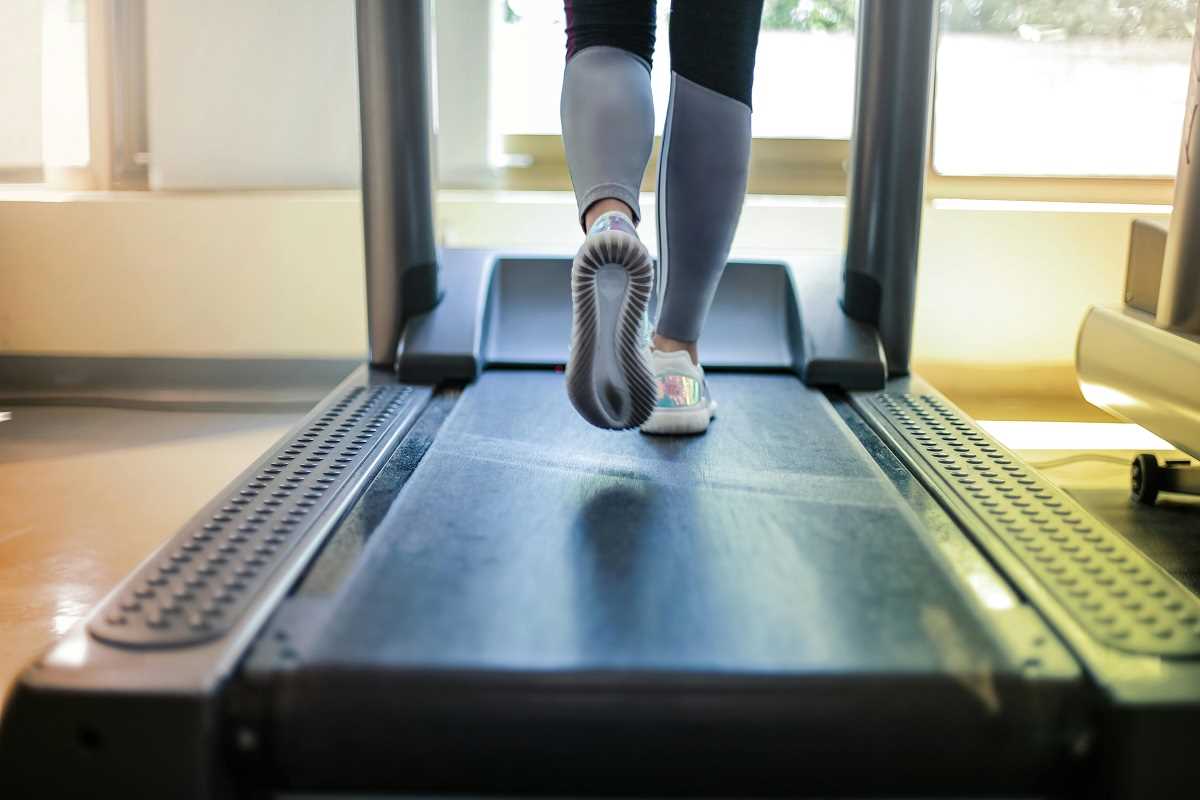When starting your weight loss journey, it’s easy to focus solely on diet and exercise. However, there’s a lesser-known yet equally crucial factor that could make or break your progress: sleep quality. Poor sleep doesn’t just leave you feeling groggy; it can directly impact your ability to burn fat, manage hunger, and stay motivated.
Many people underestimate the role of sleep in achieving their fitness goals. It’s not just about eating well and moving more; your body also requires adequate rest to function properly. Think of sleep as the secret ingredient that ties everything together. Without it, even the best diet and exercise plan may falter.
This guide explores why sleep matters for weight loss, how it affects your body, and actionable ways to improve your sleep for better results.
The Link Between Sleep and Weight Loss
1. Sleep Affects Your Metabolism
When you sleep, your body enters recovery mode to repair cells, regulate hormones, and maintain essential functions like metabolism. During deep sleep stages, your body works to optimize insulin sensitivity and balance glucose levels, both of which are key to fat loss.
On the flip side, poor sleep disrupts these processes. Studies suggest that individuals who consistently get less than seven hours of sleep per night are more likely to experience a slowed metabolism. For example, research published in Obesity Reviews found that sleep-deprived individuals burn fewer calories simply at rest when compared to those who sleep well.
This metabolic slowdown makes it harder for your body to convert stored fat into energy, which can stall weight loss—even if you’re eating fewer calories.
Think about it this way: while good nutrition and exercise feel like the bulk of your efforts, sleep is the glue that holds it together. Without restorative sleep, your body struggles to efficiently metabolize whatever food you consume.
2. Poor Sleep Leads to Increased Hunger Hormones
If you’ve ever had a sleepless night followed by a day of intense cravings, you’re not imagining things. Hormones like ghrelin and leptin play a substantial role here. Ghrelin, often called the “hunger hormone,” increases when you’re sleep-deprived. Simultaneously, leptin—responsible for signaling fullness—decreases.
The result? You’re much more likely to overeat, especially high-calorie foods. One study from the Journal of Clinical Endocrinology & Metabolism found that sleep-deprived participants consumed an additional 300 calories per day, primarily from fatty and sugary foods.
For those trying to lose weight, this hormonal imbalance creates a perfect storm. Besides eating extra calories, sleep-deprived individuals are less likely to make nutritious choices, gravitating instead toward quick, energy-dense snacks.
3. Energy Levels Matter for Exercise
It’s not just cravings that suffer when you miss out on sleep; your energy takes a hit, too. And as anyone who has tried working out while tired knows, lack of sleep makes it hard to find the motivation to exercise.
Your body feels fatigued, sluggish, and less capable of peak performance. This often leads to skipping workouts or performing at a lower intensity, drastically reducing the calorie-burning benefits of exercise. Over time, these small lapses can accumulate and make weight loss progress frustratingly slow.
Additionally, prolonged sleep deprivation can cause higher levels of cortisol (the stress hormone) in your body. Elevated cortisol not only promotes fat storage, especially around your midsection, but also hinders muscle recovery post-workout.
How Poor Sleep Impacts Beginners Specifically
Starting a weight loss or fitness routine is already demanding. Your body adapts to new eating habits, higher activity levels, and general lifestyle changes. But if you add poor sleep into the mix, beginners often face extra challenges like decreased recovery and motivation.
- Slower recovery: When you’re sleep-deprived, your muscles take longer to repair themselves after a workout. This leads to prolonged soreness and may discourage you from staying consistent with exercise.
- Higher likelihood of burnout: Sleep debt contributes to mental and physical fatigue, which can make sticking to your new routine feel overwhelming.
- Impaired focus: Lack of focus makes it harder to plan meals or fully engage in workouts, reducing the overall effectiveness of your efforts.
For beginners especially, prioritizing better sleep can prevent discouragement and set a solid foundation for long-term weight loss success.
Tips to Improve Sleep and Support Weight Loss
If you’re struggling to get quality sleep, don’t worry. There are plenty of practical steps you can take to create a sleep-friendly lifestyle. Here’s how you can rest better while supporting your weight loss goals.
1. Stick to a Consistent Sleep Schedule
One of the easiest ways to improve your sleep quality is to maintain a regular sleep schedule. Wake up and go to bed at the same time every day, even on weekends. This consistency helps reinforce your body’s internal clock (circadian rhythm), making it easier to fall asleep and wake up naturally.
For example, if your goal is to sleep 8 hours per night, try setting a bedtime of 10 p.m. and wake-up time of 6 a.m., sticking to it diligently.
2. Create a Sleep-Friendly Environment
Optimizing your sleep space makes a big difference. Start by making your bedroom cool, dark, and quiet. Consider blackout curtains, white noise machines, or earplugs to minimize distractions.
Additionally, limit screen time before bed. Blue light from phones, TVs, and laptops can suppress melatonin production, a hormone vital for sleep. Instead, use the last hour before bed to relax with a book, meditate, or do gentle stretches.
Finally, invest in cozy, supportive bedding. A comfortable mattress and pillow can eliminate physical discomfort that disrupts good sleep.
3. Avoid Late-Night Snacking
While snacking isn’t inherently bad, eating heavy meals or sugary snacks too close to bedtime can interfere with your body’s natural sleep cycle. Foods high in sugar or caffeine may make it harder to fall asleep, while heavy meals can cause discomfort by increasing digestion time.
If you’re genuinely hungry before bed, consider light options like a banana with almond butter or a handful of nuts. These provide enough nutrients to stave off hunger without disrupting your sleep.
4. Limit Stimulants in the Evening
Caffeine and nicotine are often to blame for sleepless nights. Caffeine, in particular, can stay in your system for hours after drinking coffee, tea, or energy drinks. To avoid interference, stop consuming caffeine at least six hours before bedtime.
For a soothing nighttime drink, switch to chamomile tea or warm milk.
5. Manage Stress Before Bed
Stress and anxiety are common culprits in sleeplessness. If your mind races at night, prioritize relaxation techniques in your evening routine. Deep breathing exercises, guided meditation, or even journaling can calm the mind and prepare your body for sleep.
For example, try inhaling deeply for four seconds, holding your breath for seven seconds, and exhaling for eight seconds. This "4-7-8 breathing technique" can slow your heart rate and reduce anxiety.
6. Exercise Earlier in the Day
While exercise improves sleep overall, vigorous workouts too close to bedtime may leave you feeling stimulated instead of relaxed. To avoid this, aim to finish workouts at least two to three hours before hitting the pillow. Morning or afternoon workouts tend to be the most beneficial for sleep quality.
Engaging in regular physical activity also reduces symptoms of insomnia in the long run. Even just 30 minutes of brisk walking during the day can enhance your nighttime sleep.
The Payoff of Prioritizing Sleep
For fitness beginners especially, sleep is not just “rest time”—it’s active recovery time where your body heals, grows stronger, and resets essential functions. Prioritizing sleep can amplify the results of your hard work in the gym and kitchen.
Imagine this scenario: You’ve been eating well and working out consistently, but the scale isn’t moving. Instead of doubling down on effort, taking a step back to improve your sleep could be the missing piece of the puzzle. Not only will good sleep enhance fat burning and muscle recovery, but it will also boost your mood and energy levels, making it easier to stay consistent.
Weight loss is not a one-size-fits-all process. It’s a marathon, not a sprint. And sleep is the endurance tool that keeps you going over the long haul.
Key Takeaway: Sleep is an integral part of weight loss that’s often overlooked. By improving your bedtime habits, you support faster recovery, better calorie management, and increased motivation to stick to your plan. Start by making small, sustainable changes, and watch how your sleep transforms both your health and results.
Have specific questions about reaching your fitness goals? Share them below, and we’ll work through them together!
 (Image via
(Image via





